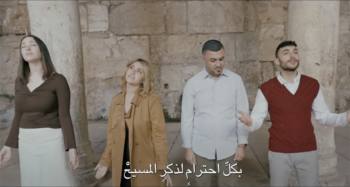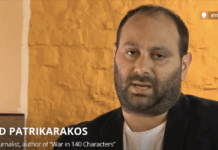By Charles Gardner —

We were studying the opening verses of Matthew’s Gospel in our church home group the other day, appropriately at the start of the Advent season focusing on the first and second coming of Christ. It’s a strange way to start a book, as our leader pointed out.
Strange, for Gentiles that is. But for Jews, it was very important, tracing the ancestral line of Jesus to prove his Messiahship, as well as unearthing a rich source of treasure in terms of God’s amazing grace. Christ’s genealogy includes a preponderance of shady characters, including women of questionable repute like Rahab the prostitute.
Then there was Bathsheba. Of all the women who could have been chosen to continue the Messianic line, and King David had many, the honor fell to the wife of Uriah the Hittite, with whom he had an adulterous relationship which he then tried to cover up by killing her husband.
Given the background to his ‘human’ ancestry (through his stepfather Joseph), it should not have been too surprising that Jesus came to be known as the ‘friend of sinners’, as he identified with our weakness and frailty in offering mercy that triumphs over judgment.
The author of this particular gospel, which opens the New Testament, was seen at the time as a ‘sinful’ tax collector compromising with the Roman occupiers.
It is especially noteworthy that Christ’s ancestral line includes several Gentiles, such as Ruth, serving to emphasize the Messiah’s mission to all people, both Jew and Gentile. And Matthew’s gospel ends with his Saviour’s call to preach the good news to all nations.
The gospel has indeed since gone global, but is now returning to its source in the Middle East where, in sharp contrast to the media’s general portrayal, both Jew and Arab are being reconciled through Jesus.
I often share my experience of witnessing this first-hand in Jerusalem over ten years ago, which always elicits incredulous responses – as few UK Christians, never mind unbelievers, are aware of this.
But I saw it with my own eyes at a conference for the mutual encouragement of believers from throughout the region. We sang, alternatively, in English, Hebrew, Arabic, Turkish and Farsi. And though I was surrounded by men and women from many nations, most of whom could not speak my language, we knew we were family worshipping our shared Father and Lord.
I witnessed the breaking down of barriers which the Apostle Paul describes as the effect of the cross of Christ: “His purpose was to create in himself one new man out of the two, thus making peace, and in this one body to reconcile both of them to God through the cross, by which he put to death their hostility.” (Ephesians 2:15f)
It was especially moving to witness a profound gesture of peace between Israel and Iran as the event gathered momentum. But as the British national media refused to carry my reports at the time, it’s no wonder little is known of what I still see as the greatest untold story of the modern era.¹
Jesus is truly the Prince of Peace (Isaiah 9:6). Only he can heal the 4,000-year-old rift between Isaac and Ishmael, the sons of Abraham.
Congregations of Jewish followers of Jesus (Messianic Jews) have sprung up all over Israel since around 1967. Their number has in fact quadrupled in the last 26 years. And many of them include Arabs worshipping together with their Jewish brothers. A Haifa congregation conducts services in four languages. And I know personally of yet another such Arab-Jewish body of believers soon to open its doors in Jerusalem.
Satan, the father of lies, is doing his best to prevent this happening. But God is working his purpose out. We are called to pray for the peace of Jerusalem. And it will surely come! But only through Yeshua (Jesus), the babe of Bethlehem who will soon return as King of Kings to rule and reign from Jerusalem.
At the 2014 conference, a pastor from Beersheva said that what Satan had meant for evil (in terms of the current conflict) God was working out for good, just as he had done with the patriarch Joseph whose brothers had thrown him down a well. For he ended up as second-in-charge of all Egypt and was able to rescue his brothers from famine and death.
I have just watched a stunning video – released by OneforIsrael.org – of young Jewish and Arab followers of Jesus worshipping together on a Jerusalem rooftop, holding hands as they sing a carol in Hebrew, Arabic and English, calling on the Lord to ‘ransom captive Israel’.
As a friend well versed in Hebraic theology put it, God often fixes a problem with the problem, citing the classic case of Bathsheba – where everything was wrong with the relationship which brought it about – continuing the Messianic line through giving birth to Solomon.
“For the message of the cross is foolishness to those who are perishing, but to us who are being saved it is the power of God.” (1 Corinthians 1:18)
The Israeli-Palestinian conflict will be resolved at the cross of Christ!
¹ See my book Peace in Jerusalem from olivepresspublisher.com



